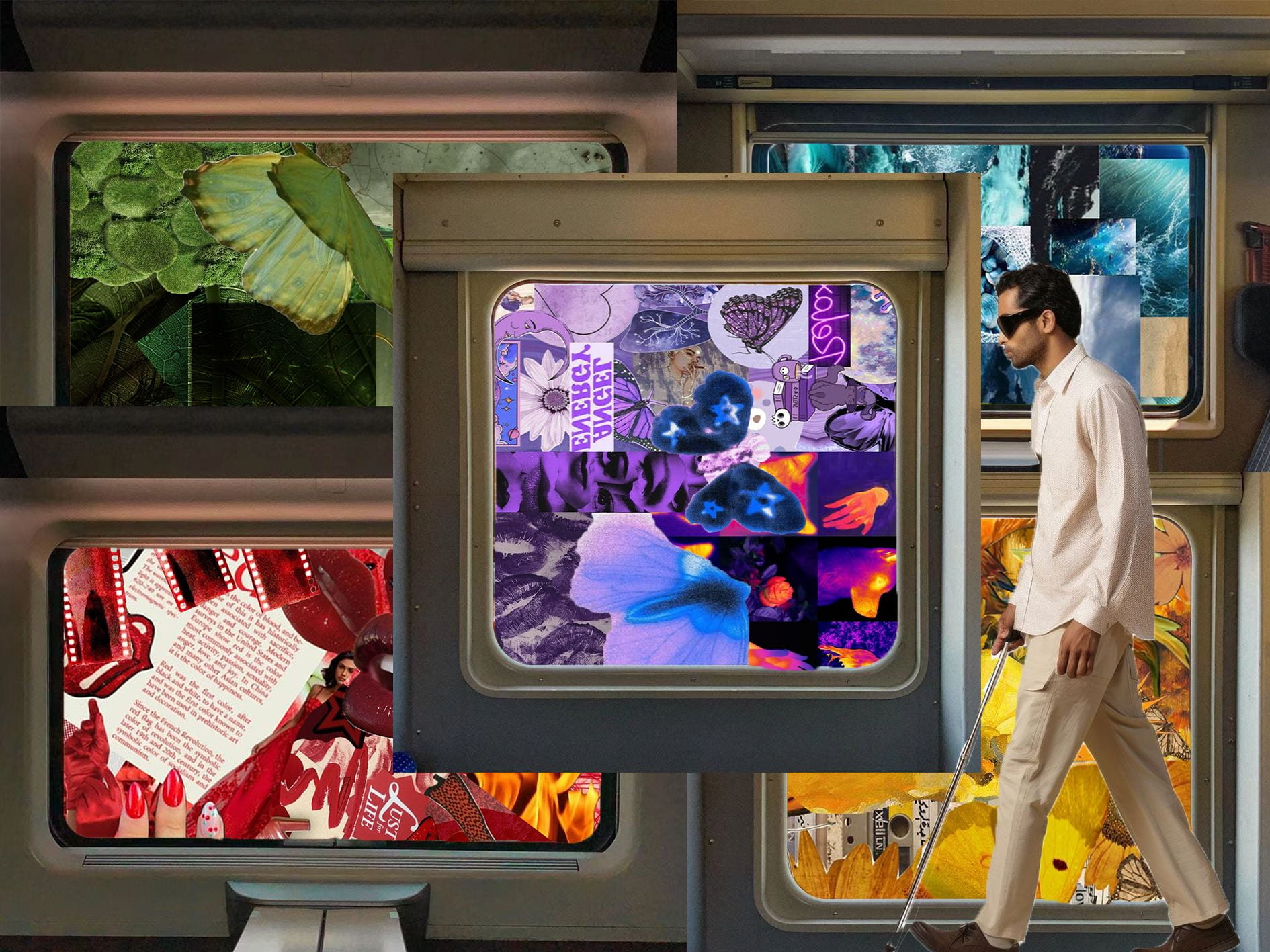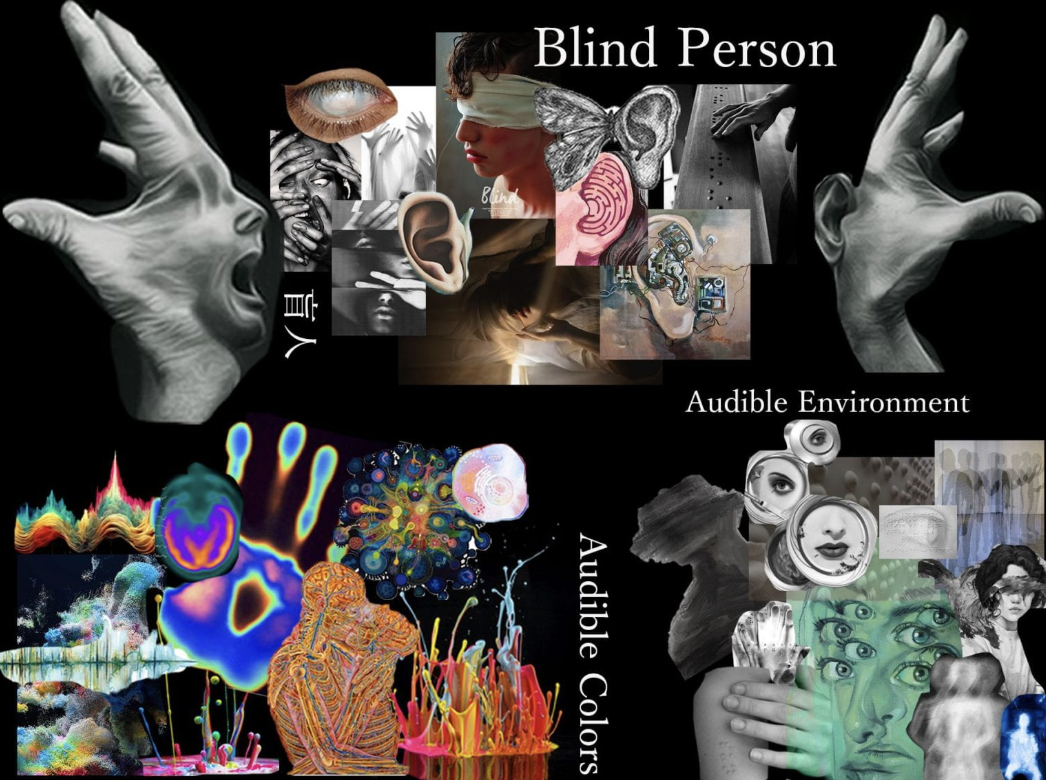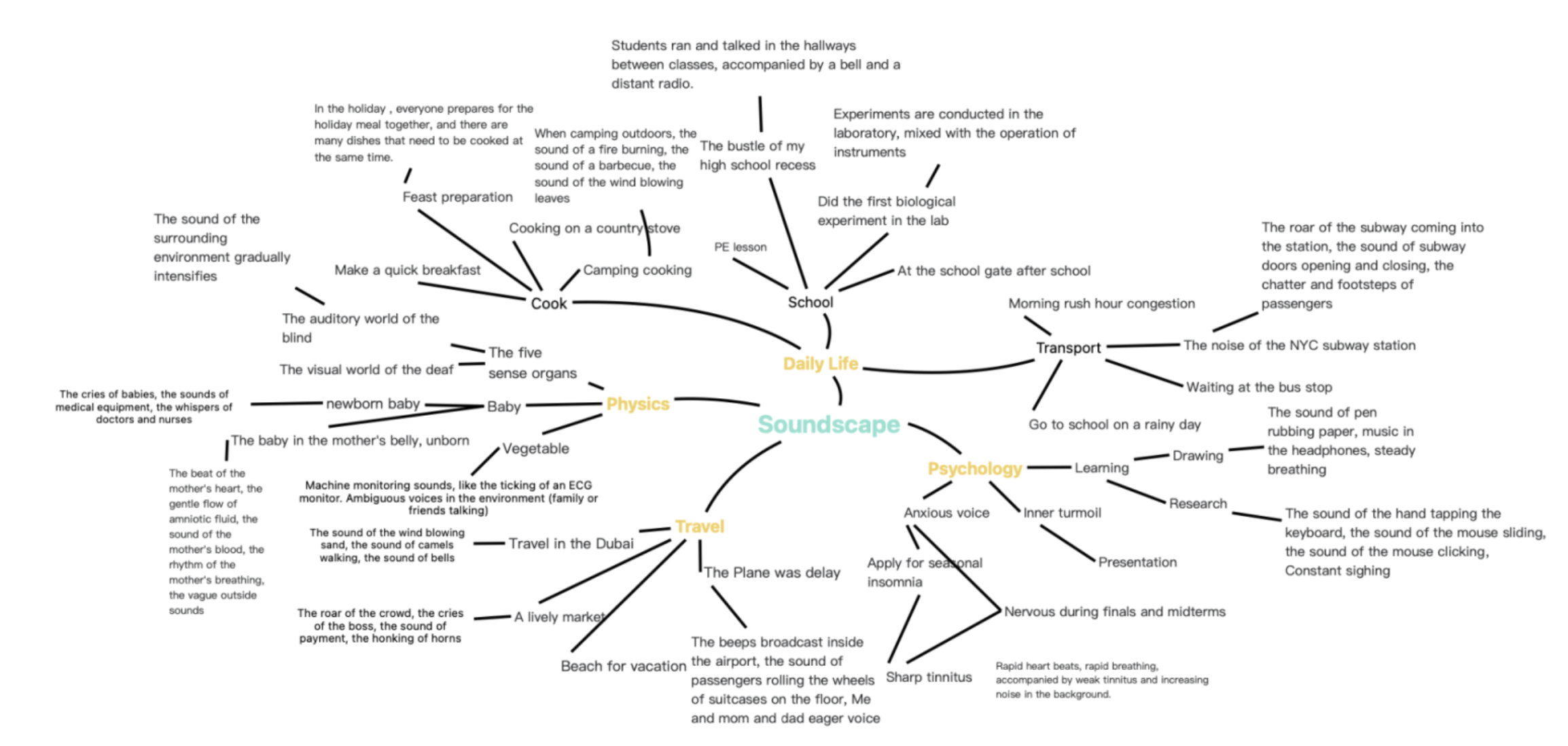
Soundscape is an immersive audio project designed to let blind individuals experience the four seasons through sound and emotion. It reimagines perception as self-exploration—allowing listeners to “see” the world through vibration, rhythm, and tone. The piece aims to inspire confidence and curiosity within the visually-impaired community while inviting sighted audiences to reconsider how sound shapes human experience.

The sound narrative unfolds in five fragments, following a blind protagonist from waking up and preparing to go out, through the lively sounds of the marketplace, to train rides that mark transitions between seasons. In the first half, the tapping of a cane guides the rhythm of movement; later, the sound disappears, symbolizing independence and inner transformation. Each season introduces a distinct emotional landscape—spring’s freshness, summer’s warmth, autumn’s reflection, and winter’s stillness—constructed through layered ambient audio, field recordings, and emotional pacing.

Technically, this project deepened my understanding of sound editing, montage, and narrative rhythm. Although I had used Adobe Premiere Pro before, this was my first time focusing entirely on sound design. I learned how to structure folders, manage clips, and synchronize tone with motion. Through montage editing, I explored how pacing and silence could evoke empathy more effectively than image alone.
Conceptually, the work was informed by research on auditory sensitivity among blind individuals—how the absence of sight enhances attention to subtle auditory cues. This guided my approach to layering fine background details, simulating how each echo, breeze, or voice contributes to spatial awareness. I also experimented with the relationship between color and sound, translating warm hues into high-frequency tones and cooler hues into softer, lower timbres to create a synesthetic experience of the seasons.
Soundscape taught me that storytelling through sound is not just technical—it is emotional communication. By merging research, empathy, and design, I discovered how art can bridge perceptional differences and redefine accessibility. This project strengthened my belief that communication is multi-sensory—and that through sound, we can build understanding, courage, and connection beyond sight.